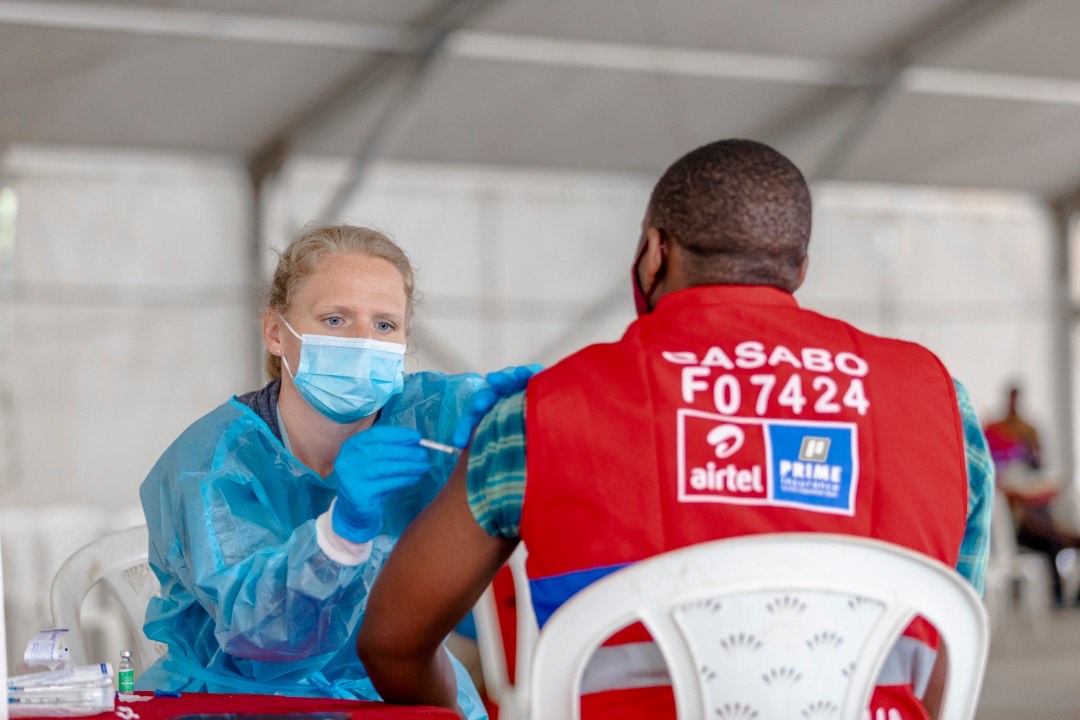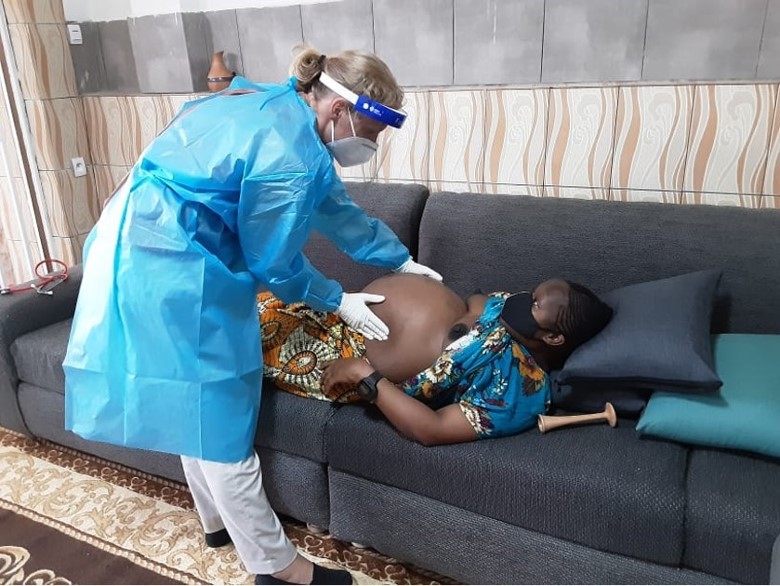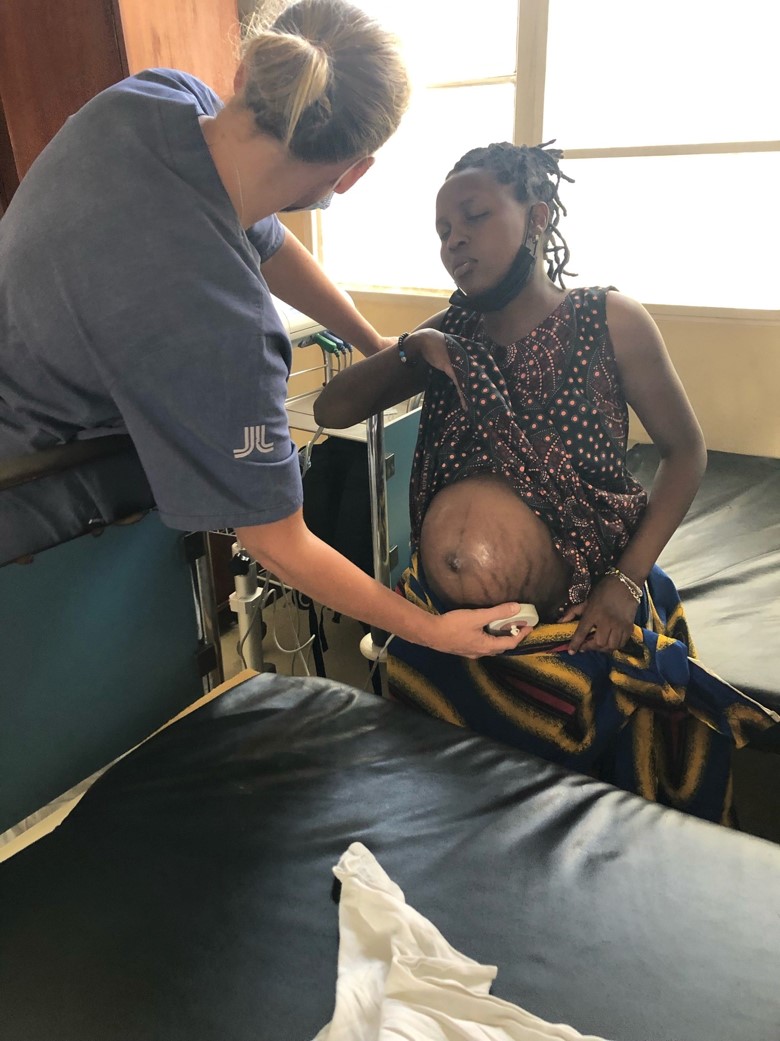KIGALI, Rwanda—“As a midwife, I have always had a passion for working in developing countries, so I was excited when I noticed UN Volunteer assignments for midwives and applied right away. However, when I first arrived in Rwanda, the country went into lockdown as COVID-19 had reached its peak and there was a surge of cases.”

Ms temple assisting on covid 19 vaccination site in kigali.
Frida Temple, an International UN Volunteer and expert midwife, joined UNFPA’s team in Rwanda from her native Sweden in January 2021. Here, she talks about her experiences after eight months of ensuring the safety of pregnant women in Kigali during the pandemic.
I did home visits to pregnant women who had tested positive for COVID-19 and made sure that they were cared for during their isolation period.
“When I arrived in Rwanda, I was deployed to the National COVID-19 Command Post Centre in Kigali, which coordinates the country’s COVID-19 response. I was part of the Technical Advisory Group where representatives from the partner organizations, Rwanda Biomedical Centre (RBC), and the Ministry of Health met to discuss technical responses, including decisions on the number of COVID-19 tests and vaccination roll-out.

Home based care on Covid-19 positive pregnant woman at Command Post
“As a midwife, I assisted with revising treatment guidelines and helped change policies, especially for pregnant mothers. I did home visits to pregnant women who had tested positive for COVID-19 and made sure that they were cared for during their isolation period.
“I am currently working at Muhima hospital, one of the hospitals with the highest maternal and neonatal mortality rates, where I am mentoring many midwives, midwifery students and medical students. I am working with the manager on making the work in the labour ward more effective, patient-centered and safe.
“Increasing the motivation [levels among staff] is important and this is one of the things I am working on. We are learning from each other and together we are making the labour ward, operating theatre, neonatal intensive care unit (NICU) and post-partum ward better places. The relieved tears of a pregnant woman at the moment when I am able to tell her that her baby is well are dear to my heart.”
Saying goodbye to a much-wanted baby can be made precious even in the shock and chaos of the moment.
“It is wonderful to leave work knowing that we have saved lives through teamwork and shared knowledge. But even when a tragic death happens, it is equally important to make those moments dear moments for the patient.”
“Saying goodbye to a much-wanted baby can be made precious even in the shock and chaos of the moment. Midwives need to be there for mothers, partners and babies when a tragedy happens. And it is equally important to leave work at the end of the day feeling like we did the best we could for that family.
“My work includes supervising the Emergency Obstetric and Neonatal Care (EmONC) needs assessment in Rwanda. By supervising data collectors in multiple health facilities, we assess the status of the maternal care system in Rwanda and the needs of the beneficiaries.
“I work closely with the Rwanda Association of Midwives and the University of Rwanda to enhance the midwifery profession and education in Rwanda. While facilitating the International Day of the Midwives commemoration, I could see that what I have been doing so far with UNFPA is not only about supporting individuals but also encouraging them to be brave — the enthusiasm in their eyes will lead to a bright future for Rwanda.
“I am proud to be a UN volunteer with UNFPA, as it is such an amazing organization that makes a big difference for women, children and young people.”

Listening to the fetal heart rate at Muhima


